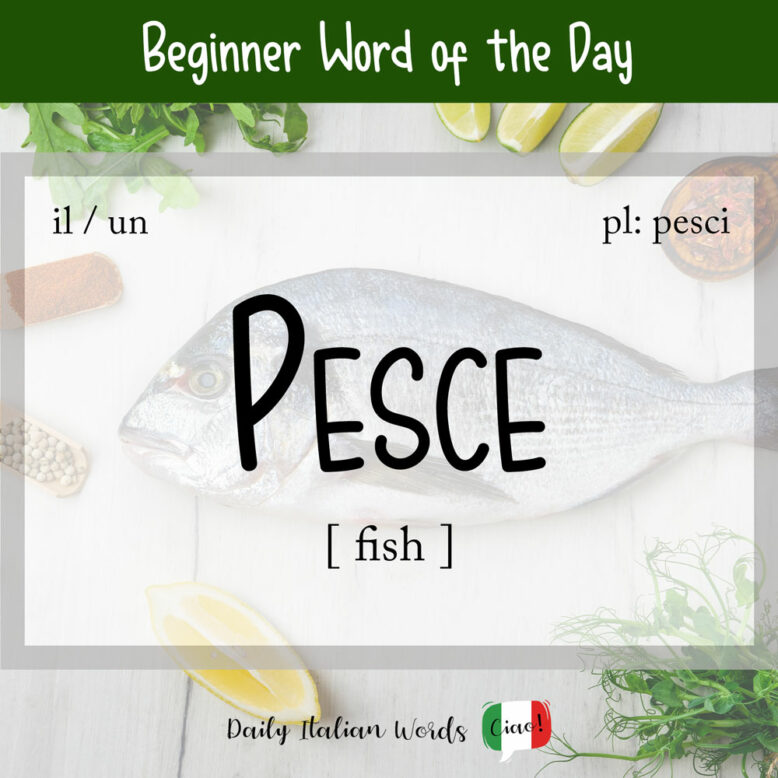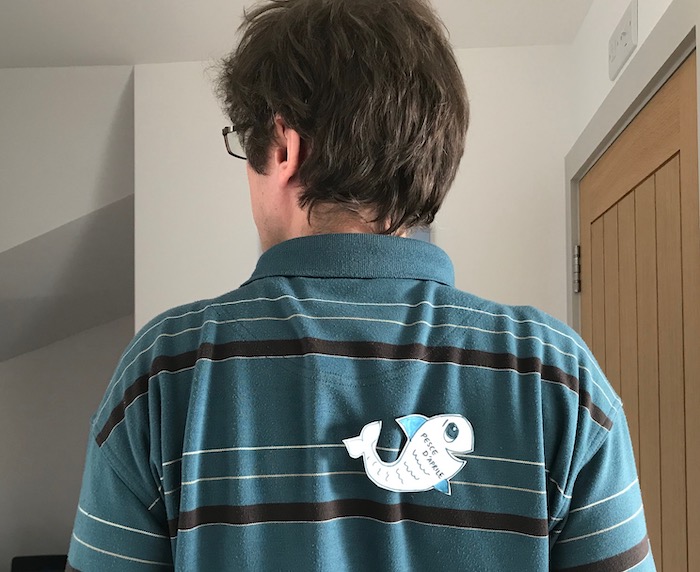Just as in English, the word pesce (masculine, plural: pesci) can refer to the living aquatic animal, as well as any kind of culinary dish made out of the animal.

If this word sounds familiar, it is because it shares the same etymological origin as the English word pescatarian (someone who eats fish but not meat).
Un pescetariano è una persona che mangia pesce, ma non bistecche, maiale o altri tipi di carne.
A pescatarian is a person who eats fish, but not steak, pork or other kinds of meat.

The plural Pesci with a capital P is also the name Italians give to the constellation and Zodiac sign Pisces.
Below are some common types of fish you’ll encounter while living in Italy. For a very complete list, be sure to check out this article on Walks of Italy.
- salmone = salmon
- tonno = tuna
- trota = trout
- squalo = shark
- luccio = pike
- scombro = mackerel
- acciuga = anchovy
- anguilla = eel
In Italy, April Fool’s Day is known as Pesce d’Aprile (April’s Fish). As the name suggests, one of the most common pranks involves taping a paper fish onto the back of an unsuspecting victim. Then, everyone goes around asking if anyone has seen April’s fish until the victim figures out that he or she was the target.

In addition to being the name of the actual day, the word pesce d’aprile is also how you would say April Fool’s prank in Italian. It is suspected that the tradition dates back as far as the 14th century!
Idioms featuring the word ‘pesce’
Essere come un pesce fuor d’acqua
Literal translation: to be like a fish out of water
English meaning: to be like a fish out of water
Essere un pesce grosso
Literal translation: to be a big fish
English meaning: to be a big fish
Non sapere che pesci pigliare
Literal translation: to not know which fish to catch
English meaning: to not know what to do
Non essere né carne né pesce
Literal translation: to not be meat or fish
English meaning: be in a grey area, something not easily categorised
Essere sano come un pesce
Literal translation: to be as healthy as a fish
English meaning: to be as fit as a fiddle
Heather Broster is a graduate with honours in linguistics from the University of Western Ontario. She is an aspiring polyglot, proficient in English and Italian, as well as Japanese, Welsh, and French to varying degrees of fluency. Originally from Toronto, Heather has resided in various countries, notably Italy for a period of six years. Her primary focus lies in the fields of language acquisition, education, and bilingual instruction.


